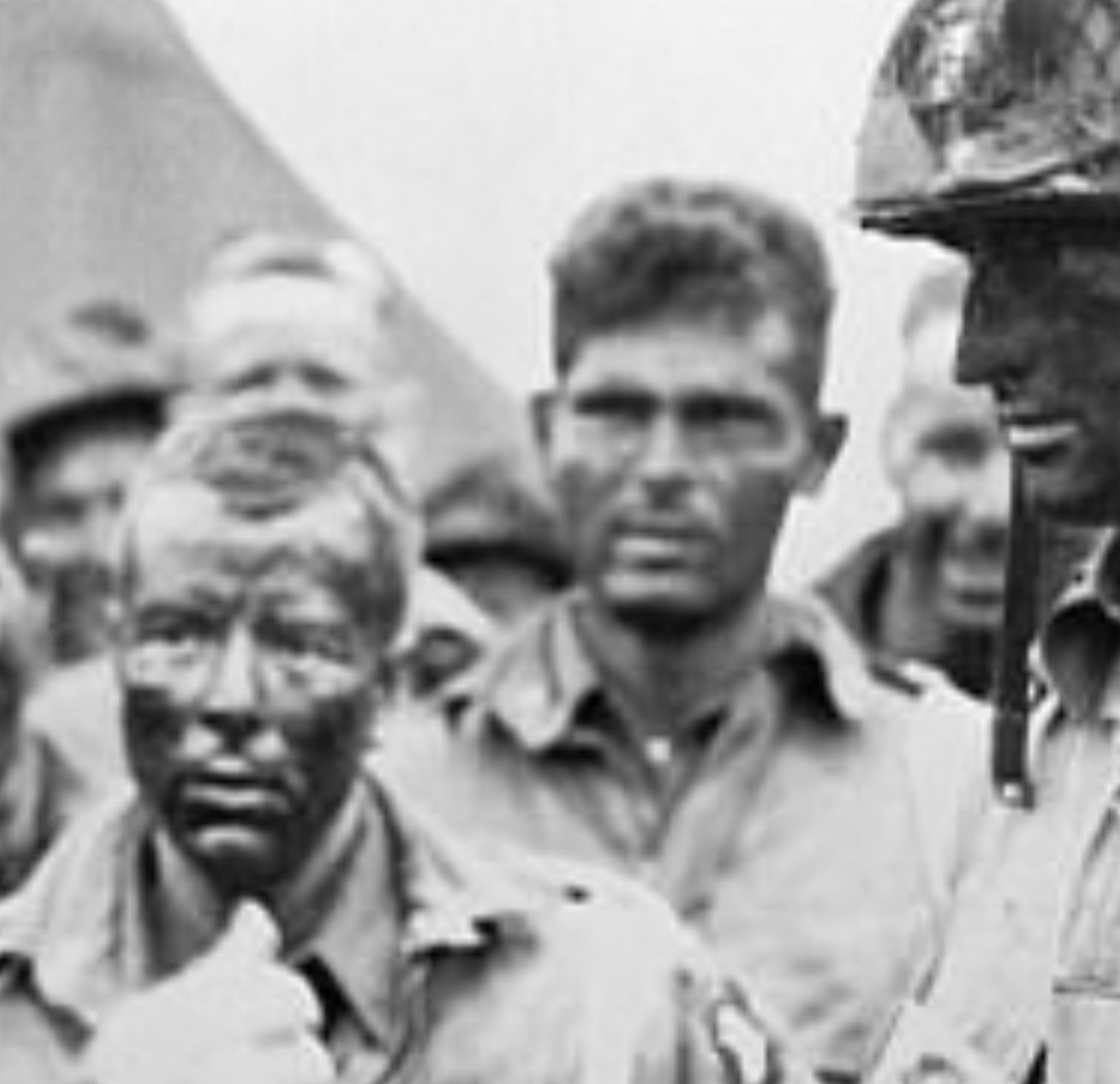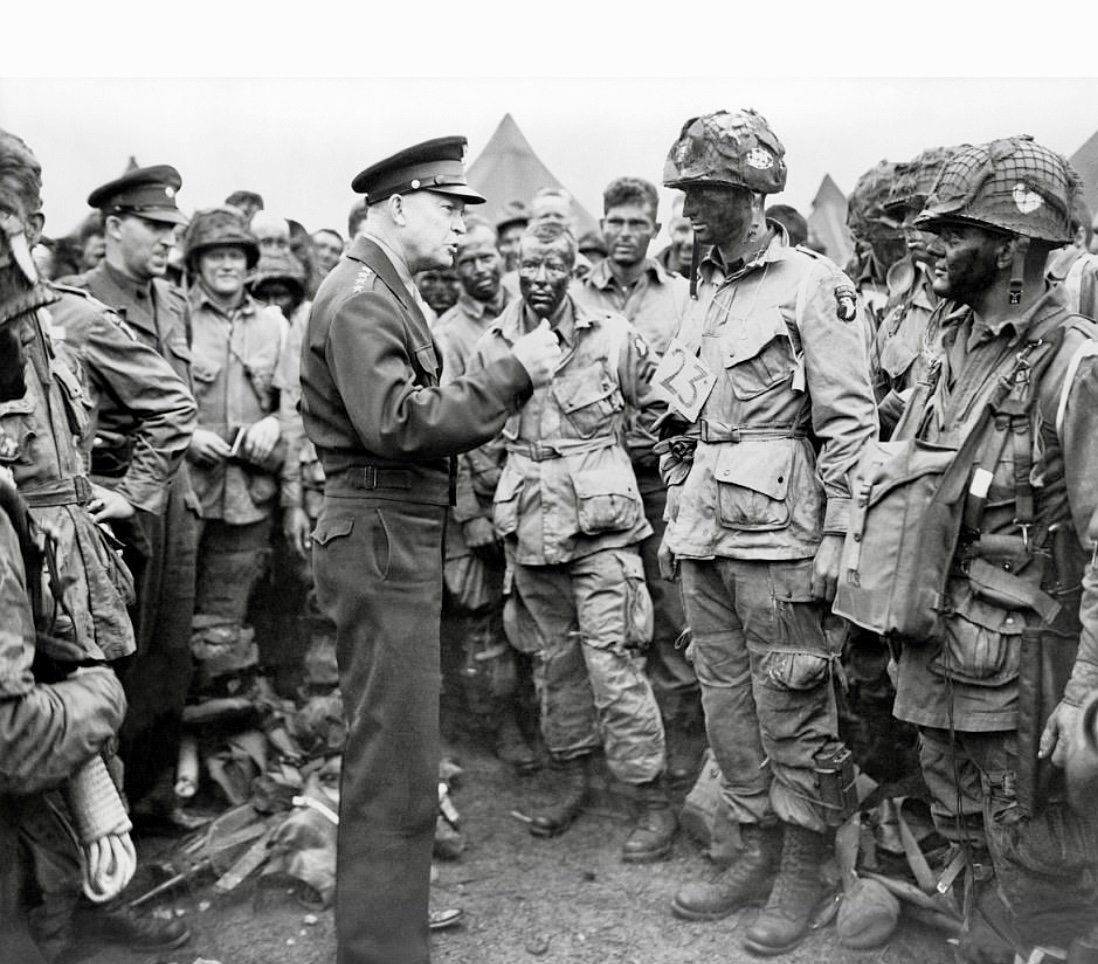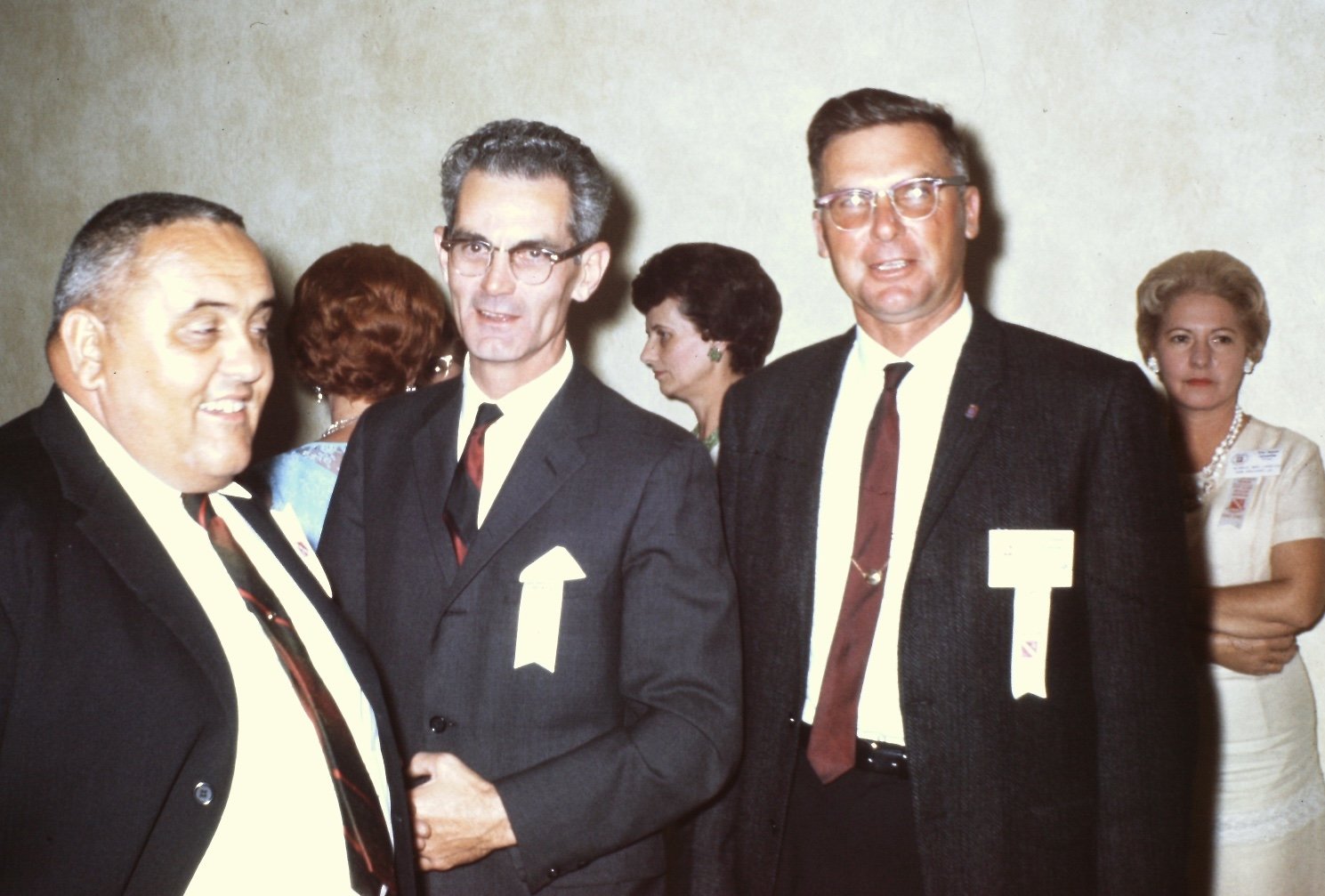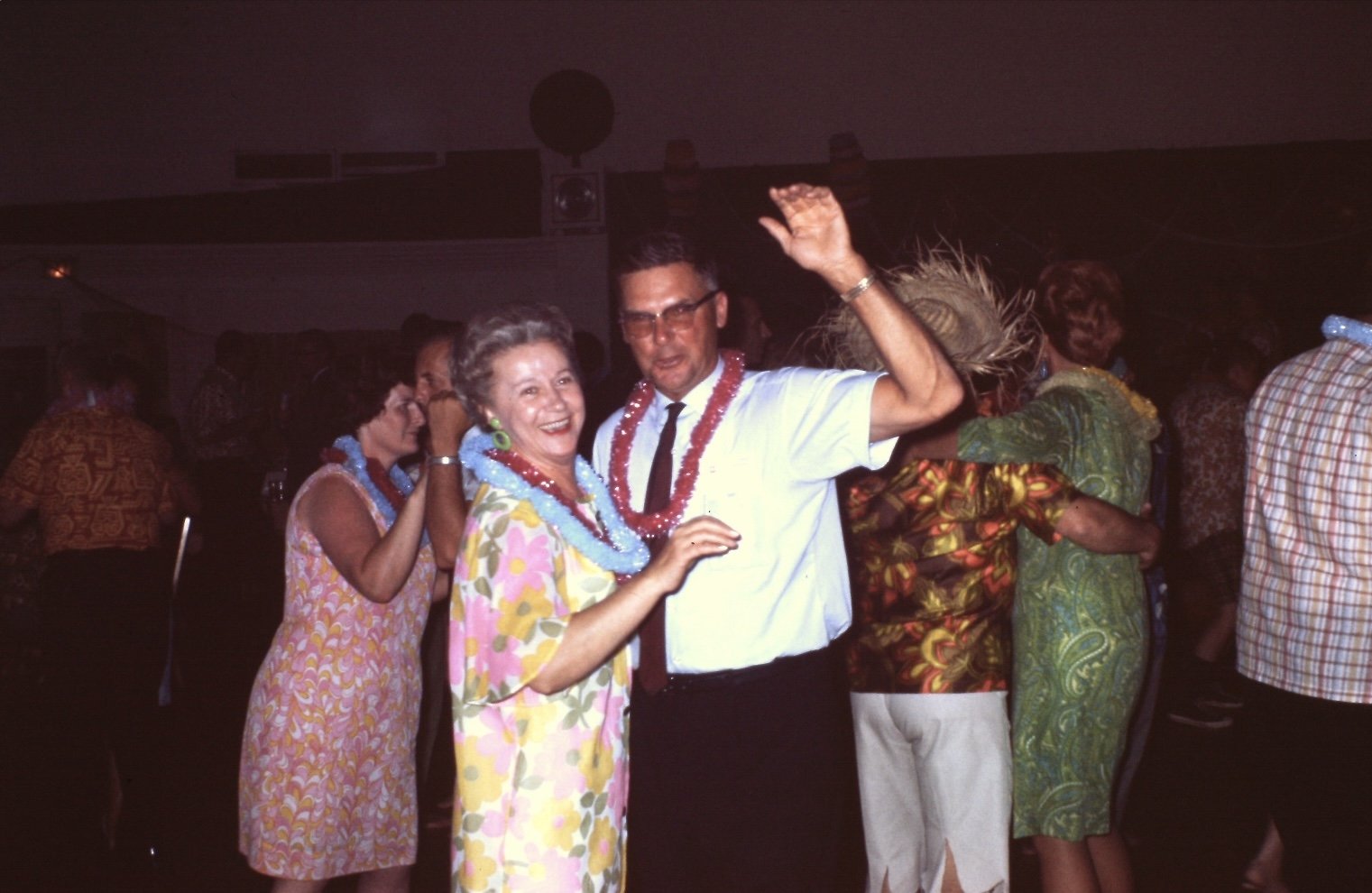Wilmer Ranniger
ASN:37189998










STL Archives
Diary of Wilmer Ranniger - courtesy of Joseph Covais, author of BATTERY
1942:
March 3: Left Denison by bus.
March 31 to April 3: Inducted into the Army in Des Moines, IA.
April 4: Arrived in Fort Sill, OK by bus for Basic Training.
April: Three months of training in communication (received $21.00 a month).
April 14: Arrived in Camp Claiborne, Louisiana, and joined the 82d Airborne Division's 319th Field Artillery.
October 3: Left Camp Claiborne, Louisiana, by troop train.
October 4: Arrived in Fort Bragg, North Carolina.
November 10: Ten-day furlough home by train, which included stops in Washington D.C., Pittsburgh, PA, Chicago, IL, and finally home with multiple train changes.
1943:
October 4 to April 22, 1943: Stationed in Fort Bragg, North Carolina.
April 23: Left Fort Bragg by train.
April 24: Arrived in Camp Edwards, Massachusetts.
April 27: Left Camp Edwards for New York, all day by train.
April 28: Left New York and embarked for overseas; destination unknown. Encountered rough seas during the journey and an abandoned ship call due to a German submarine scare.
May 10: Arrived in Africa-Casablanca (French Morocco) and camped in a wheat field.
May 12: Left Casablanca on an old French freight train, crossed the North Sahara, and arrived in Oujda, Algeria, where they camped in pup tents in a wheat field.
June 23: Loaded up for a 600-mile ride to Tunisia.
July 7: Moved out of Tunis on the Mediterranean Sea.
1943 Continued:
July 8: Loaded gliders for the Invasion of Sicily; experienced a German Luftwaffe bombing that night.
July 9: Invasion of Sicily; gliders wrecked due to a storm, so paratroopers had to go in alone.
July 30: Stationed at Bizerte near Tunis.
September 7: Left for the Invasion of Italy by boat.
September 9: Day before landing, Italy surrendered. They received apples and oranges from a command ship.
September 10: Landed on Utah Beach, Maiori, Italy, and set up artillery (75 howitzers) to support Darby Rangers during the Battle of Mt. Angelo.
October 1: First to arrive in Naples, Italy, where they received wine and flowers on Jeeps.
October 2-6: Participated in the Battle at the Volturno River.
October 6: Assigned as a forward observer but later called off the mission due to Lieutenant Fitzgerald's death.
October 7 to November 18: Returned to Naples and patrolled the city.
November 18: Left Naples for Ireland.
1944:
December 9 to February 12: Training in Camp Ballyscullion, Ireland (North Ireland), with a 48-hour pass to Belfast.
February 12: Boarded an old captured German ship and crossed to Glasgow.
February 14: Arrived in Central England near Market Harborough.
March 20-25: Training in the mountains of Wales.
March 26-31: 5-day pass to London.
May 31: Moved to southern England for preparations for the invasion of Normandy.
June 6: D-Day; landed on the Cherbourg Peninsula near Saint Mere Eglise.
June 6 to July 15: Time spent in Normandy, with the division losing 1284 men out of 10,000.
July 15: Left France for England.
July 17: Returned to the camp in England.
1944 Continued:
August 15: Loaded up for a mission into Belgium but called off due to Patton's rapid advance.
September 18: Loaded up again, landing 100 miles ahead of Patton in Holland. Encountered some damage but no casualties.
November 14: Left Holland by truck through Belgium.
November 15: Arrived at Camp Suippes area near Rheims, France.
December 18: Left for Belgium (Battle of the Bulge) by truck, issued winter clothing.
1945:
February 9: Returned to France.
March 30: Left for Germany in the area of Cologne.
April 12: Franklin Roosevelt died while stationed in Cologne.
April 20: Crossed the Rhine at Dusseldorf, Germany.
April 25: Crossed the Elbe River near Ludwigslust.
May 3: Met Russian soldiers.
May 8: Germany surrendered.
May 10: Toured Wobbelin Concentration Camp at Ludwigslust, Germany.
June 3: Left Germany for the last time by truck and jeeps.
June 5: Arrived at an old French army camp near Nancy, France.
June 10: Toured WWI battle grounds and historical sites in France.
June 15: Started training for the Invasion of Japan, scheduled for November 1945.
August 6: Enjoyed a 7-day furlough to the Riviera in southern France, including a visit to the Perfume factory at Grasse and swimming in Monte Carlo.
August 8: Japan surrendered.
September 5: Men with high points could go home (Wilmer had 99).
September 6: Left for home via Marseille, France, aboard the U.S. Wakefield.
September 14: Arrived at Camp Myles Standish in Boston.
September 18: Left Boston by train, with stops in New York.
September 19: Arrived at Camp Sheridan, Illinois.
September 21: Received honorable discharge from the service.
September 22: Arrived back home in Manilla, Iowa.
Other memorabilia;
A wooden bullet used by the Germans for short range use.
A medal worn by a German soldier fighting in France -- dated 1939.
A spoon and fork combination used by a German soldier.
Wilmer Ranniger's "dogtags." American soldiers had 2 tags. If the soldier was killed and buried on site then one tag would be used to identify who was buried there and the other was taken along by a living soldier for record purposes. The round tag signified the religious faith --- in Wilmer's case this tag had Lutheran listed.
Pieces of shrapnel Wilmer picked up during the battle in Normandy.
Wilmer Ranniger, 88, died June 9, 2003. God bless this hero.







